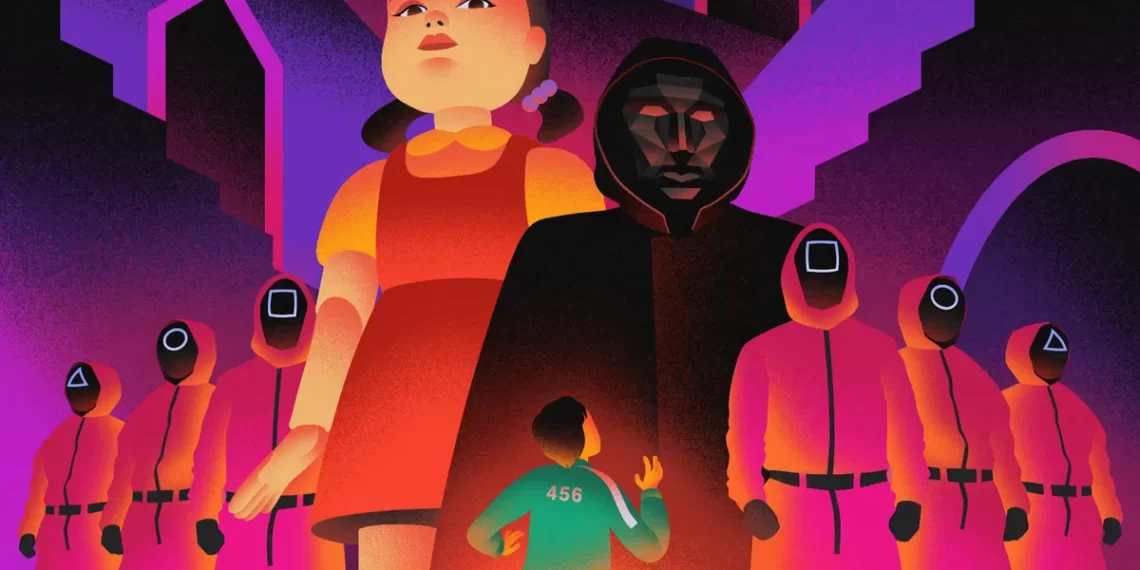SEOUL (Realist English). As Squid Game approaches its final, blood-soaked chapter, the show’s masked Front Man offers Player 456 a fateful choice: keep believing in humanity — or surrender to despair. The third and final season of Netflix’s anti-capitalist parable, which premiered June 27, delivers no easy answers, only stark questions about the system that forces people into ruthless survival games and the moral cost of resisting it.
Since its 2021 debut, Squid Game has drawn global acclaim — with 600 million views — and sparked new interest in Korean TV, exposing the grim inequalities of a society where many young people now call themselves the “give-up generation.” Rising debt, high suicide rates, and soaring housing costs have deepened disillusionment, compounded by recent political turmoil and the impeachment of President Yoon Suk Yeol.
“Perhaps we still have a chance if we can find even a glimpse of hope within ourselves,” creator Hwang Dong-hyuk said during filming.
In the final season, protagonist Seong Gi-hun (Player 456), nearly silent with guilt and grief, searches for new meaning in a contest even crueler than before. Returning games include the robot doll of “Red Light, Green Light” — now paired with a male counterpart — while new alliances form and betrayals erupt.
Critics say Squid Game’s power lies in its reflection of South Korea’s deep wealth gap and the hidden violence sustaining privilege. Despite small signs of reduced income inequality, soaring housing costs and the country’s record-low fertility rate highlight a widening fracture in Korean society.
Actor Lee Jung-jae, who plays Gi-hun, said, “We want to create an impact in society… not just entertainment.”
As Netflix weighs the franchise’s future — possibly with spin-offs focused on the Front Man or the mysterious Recruiter — one thing is clear: the savage inequality at the heart of Squid Game’s story remains an inescapable reality for millions in South Korea and beyond.


















